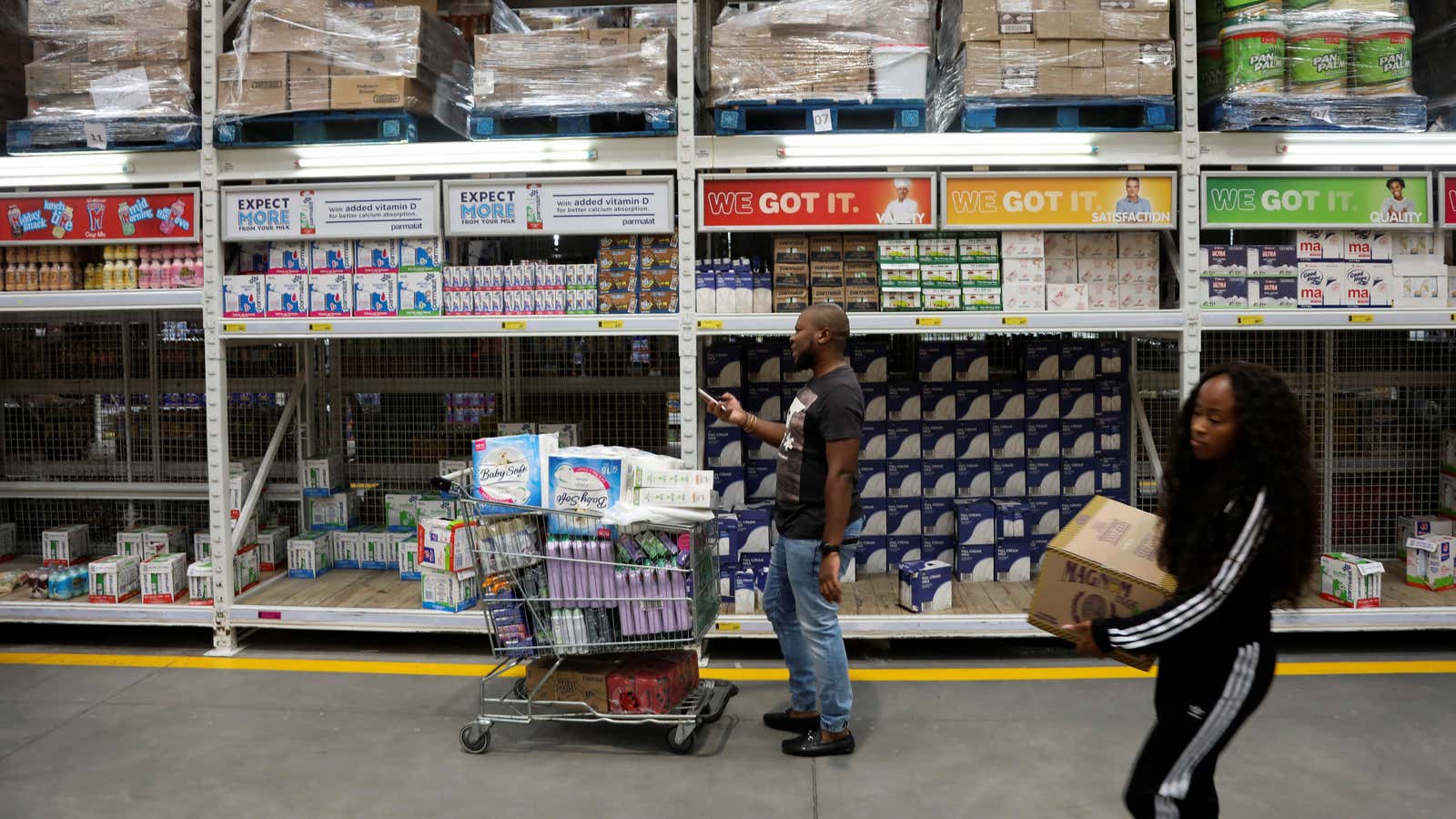This week more than 11 million school children are set to stay at home in South Africa as the country’s drastic measures to curb Covid-19 infections come into force. The South African government began revoking visas for individuals traveling from high-risk countries such as the UK, China, the US, and in Europe. And it has banned gatherings of more than 100 people—including its upcoming Human Rights Day celebrations and mass gatherings planned for Easter pilgrimages.
So far, the country has reported 116 confirmed cases (but no deaths) of coronavirus, which has killed more than 7,500 people globally. The number is increasing—something which could spell disaster for South Africa’s already overburdened healthcare system.
Among African countries, South Africa has taken some of the most radical steps so far. While one of the most developed countries in sub-Saharan Africa, South Africa has the highest number of HIV infections in the world, with about 7.7-million people living with the disease. HIV makes many of the country’s citizens susceptible to tuberculosis, a bacterial infection which targets the lungs; about 60% of people in the country with HIV also have TB.
Scientists do not know how Covid-19 will affect people with HIV and TB, although they worry that they will be at heightened risk. While people of all ages can contract Covid-19, those most at risk of severe complications are older people and those with underlying medical conditions such as lung disease, according to the World Health Organization (WHO). The Academy of Science of South Africa has said that individuals with HIV are already eight times more likely to be admitted to hospital for influenza-linked pneumonia.
“Never before in the history of our democracy has our country been confronted with such a severe situation,” South African president Cyril Ramaphosa said when he addressed the nation on 15 March.
Africa has to date been spared the rapid spread of coronavirus seen in Europe, but health officials are concerned that if or when it starts to accelerate on the continent, African countries—including South Africa—lack the healthcare infrastructure to cope with the avalanche of severe cases seen by the likes of China and Italy. Experts fear that Africa will have a “substantial epidemic”.
“Although we continue to see the majority of cases in a handful of countries, we are deeply concerned about the increasing number of countries reporting cases, especially those with weaker health systems,” WHO director-general Tedros Adhanom Ghebreyesus said earlier this month.
So far, 29 countries in the whole of Africa have confirmed Covid-19 infections. Most of the cases seen so far are people infected during travels in other countries. Kenya and Ghana have joined South Africa in instituting dramatic measures to keep infected people from getting into their countries, including barring entry to anyone who has been to a country with reported Covid-19 cases and closing some of their ports of entry entirely.
The level of uncertainty surrounding the disease has African scientists concerned.
“We really have no idea how Covid-19 will behave in Africa,” Glenda Gray, president of the South African Medical Research Council, told Science. Some hope that the high temperatures in African countries could tamp down on the virus that causes Covid-19—in the same way that influenza is seasonal, although others are skeptical. Social distancing, which has been recommended to slow the disease, is difficult in countries that have many informal settlements and slums.
At the same time, the continent has the world’s youngest population, something which may improve its chances of weathering the pandemic.
What is known is that the economic fallout is expected to hit countries hard.
The most immediate casualty will be tourism, with African countries closing their borders to the lucrative markets of Europe, the United States, and China. The World Travel & Tourism Council estimates that tourism accounted for 8.5% or $194.2 billion of the continent’s gross domestic product in 2018. This will likely be exacerbated with the global recession that analysts fear is looming as countries close their borders and the movement of goods and services around the world stutters.
Already in a recession, the pandemic is throwing South Africa’s existing problems into sharp relief.
The government is encouraging people to wash their hands, but many areas do not have access to running water. Citizens are encouraged to avoid other people, but the majority of the country’s inhabitants travel by minibus taxis—which are often overcrowded and already thought to be vectors for TB.
And while people are urged to work from home, the country is in the middle of electricity rationing that can last for hours.
But without these measures, the Covid-19 pandemic would be catastrophic for the country. “This epidemic will pass,” Ramaphosa said. “But it is up to us to determine how long it will last, how damaging it will be, and how long it will take our economy and our country to recover.”
This story was updated with the number of cases in South Africa as of March 18.
Sign up to the Quartz Africa Weekly Brief here for news and analysis on African business, tech and innovation in your inbox
